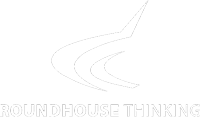Coaching for high performance is about helping people reach their full potential. This means working with people to improve their overall performance at work and achieve their goals and aspirations.
Coaching is incredibly important and involves working with people at every layer of the business in order to help reach their full potential. High performance coaching gives people the time to reflect and acknowledge their motivation and overcome the interference that may be holding them back. It is also invaluable for managers to evaluate an employee’s aspirations and ultimately improve productivity.
Coaching particularly helps and highlights the following;
• Navigating a career change. An example of a career change could be the transition from being a manager to being seen as a leader – someone who offers clear guidance, motivation and inspiration. Coaching can help assist people in reaching their aspirations
• Changes to performance or behaviour. Breaking bad habits and relearning skills is something coaching and mentoring can consistently monitor and improve
• High performance coaching can often help people recover from major business or personal setbacks such as work-life imbalances and stress
• Evidence shows that people who have clear plans and goals for the future are more likely to be successful long term, therefore creating these with guidance is a huge benefit.
Benefits are not only seen by the individual being coached but ultimately apply to the business. Improvement in an individual’s performance will only enhance productivity and by highlighting personal learning and development, this will increase an individual’s awareness. Coaching also gives a person time to reflect and discuss their aspirations allowing for solutions to be identified regarding specific work-related issues.
The GROW model.
GROW, an acronym for Goals, Reality, Options and Will which highlights the four key steps of this model used often for coaching. By applying these four stages, this model is able to raise an individual’s awareness and understanding of the following;
• Individual aspirations
• Current situation
• The possibilities and resources available to them
• The goals they want to achieve.
By setting achievable goals, that are both challenging and measurable, this model aims to instil confidence, leading to increased self-motivation and assurance, creating personal satisfaction.
Build rapport.
Rapport is a definite requirement in the coaching relationship. The more rapport the better. Without this, it can end up being a very flat meeting with no genuine intent or purpose. The more time spent developing a coaching relationship, the more honest the speaker will be, leading to a more natural conversation like session.
Exercise active listening.
Give the speaker your attention and acknowledge what they are saying. This can be done simply by maintaining eye contact and not getting distracted. Ensure you also use positive body language and gestures such as nodding, smiling and note your posture, ensuring that this is always open and inviting.
Understand and clarify.
Reflect on what has been said. It’s sometimes easy for our assumptions and judgments to come into play, however steer clear as your role in this instance is to ultimately understand what is being said. Ask questions to clarify certain points and summarise what has been said in order to gain a clearer understanding. This will also allow the speaker to reiterate their point.
Remember not to interrupt when the speaker is speaking. Before asking questions, allow the speaker to finish each point before asking the next question. By interrupting, you may risk missing important information or the speaker may feel rushed or uncomfortable and you may also limit your full understanding.
Manage your response.
Your response ultimately determines how the speaker feels within the coaching relationship. Active listening is very much required to gain respect and a full understanding on the perspective being given. Be open and honest in your response and give your opinions respectfully. Remember to treat the speaker in a way that you would want to be treated. It often takes a lot for a person to open up so ensure you treat a coaching session with respect.
Follow @RHThinking for more helpful tips!


